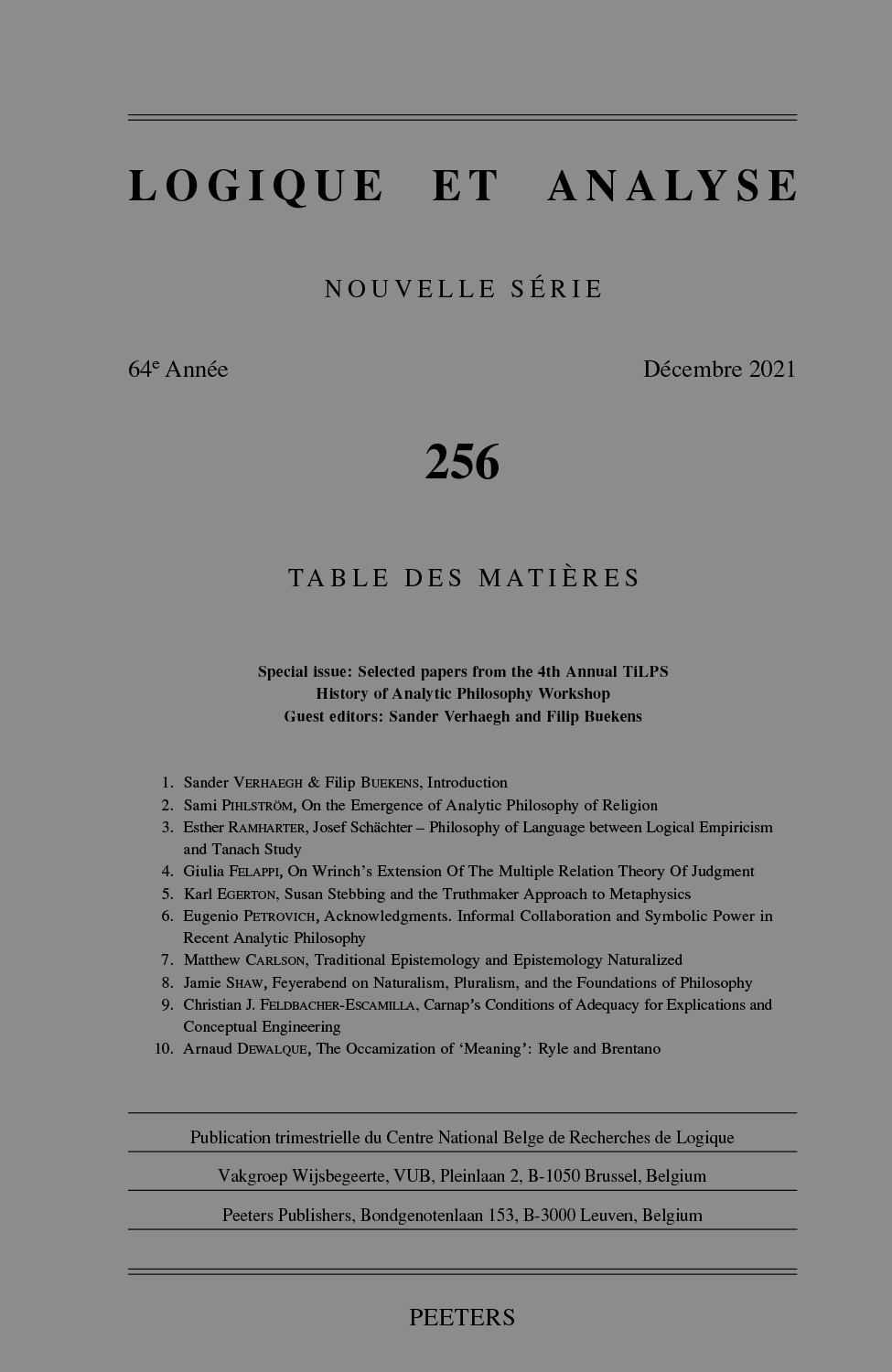 previous article in this issue previous article in this issue |

Preview first page |
Document Details : Title: Mathematics, Logics, and Philosophy Subtitle: The Analytics/Synthetic Distinction in Kant, Bolzano and Peirce Author(s): OTTE, Michael Journal: Logique et Analyse Volume: 225 Date: 2014 Pages: 83-112 DOI: 10.2143/LEA.225.0.3011357 Abstract : The analytic/synthetic distinction lies at the heart of Kant’s Critique of Pure Reason and Bolzano employed difficulties in Kant’s presentation to re-conceptualize the whole relationship between science or mathematics and logics. Bolzano was not any more concerned with epistemology, but with science and mathematics as a cultural and logical phenomenon and he made analyticity (syntheticity) a characteristic of the form of a proposition. His semantic reformulation of Kant’s problem trivialized it in a sense (WL §305). On the other hand, the problem, by being transferred to the wider socio-cultural context, showed its greater complexity. The analytic/synthetic distinction since became accepted as a fundamental 'Dogma' (Quine) of scientific positivism and analytical philosophy. Peirce agrees with Bolzano that the first question that Kant should have asked was, how synthetic propositions are possible at all. His criticism of Kant’s views on the analytic/synthetic distinction departs, however, into a quite different direction. Peirce, being primarily interested in the growth of knowledge, rather than in the construction of a logical system, stresses the universal importance of semiotics. Peirce considers the distinction between signs and objects, between general and particular, as only relative and thus the analytic/synthetic distinction became recognized as relative too. What seems fascinating is, that a rather specific question — the meaning and reference of the analytic/synthetic distinction — can be turned into a probe to investigate the wider philosophical contexts. The differences between the three philosophers amount to fundamental philosophical differences, rather than reflecting different ideas of the analytic/synthetic distinction itself. Rather than assuming that we all 'live' (mentally, that is, as philosophers) in the same world, believing that there is the 'right' answer, we could think about, how the same idea or problem comes to look like within different worlds. In the philosophy of mathematics it is absolutely useless, for instance, to ask out of context, 'what numbers really are?' Fatal error: Uncaught mysqli_sql_exception: Column 'lib_id' cannot be null in /srv/data/web/vhosts/poj.peeters-leuven.be/htdocs/secure/POJ/tracker2.php:212 Stack trace: #0 /srv/data/web/vhosts/poj.peeters-leuven.be/htdocs/secure/POJ/tracker2.php(212): mysqli_query() #1 /srv/data/web/vhosts/poj.peeters-leuven.be/htdocs/article.php(579): track2_page_hit() #2 /srv/data/web/vhosts/poj.peeters-leuven.be/htdocs/content.php(636): include('...') #3 {main} thrown in /srv/data/web/vhosts/poj.peeters-leuven.be/htdocs/secure/POJ/tracker2.php on line 212 |
